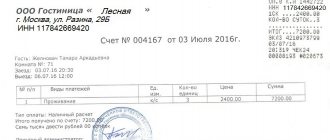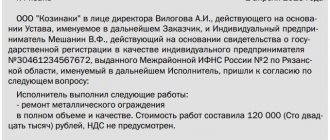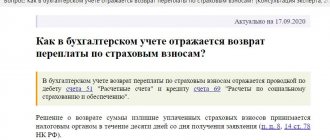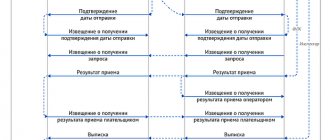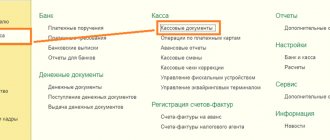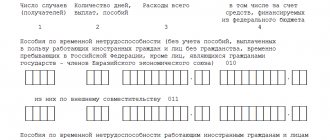A component of travel expenses are the costs of hotel accommodation. The employee is required to provide supporting documents for the cost of these services. This can be an invoice, a cash receipt, or sometimes just a receipt for the PKO. But which document will satisfy the tax authorities? And what if, for example, breakfast is included in the bill? You will find answers to these and other questions in the article.
The company is obliged to reimburse the employee for expenses incurred during a business trip for the cost of renting living quarters (Article 168 of the Labor Code of the Russian Federation, clause 11 of the Regulations on Business Travel, approved by Decree of the Government of the Russian Federation of October 13, 2008 No. 749). But to do this, the employee must confirm his expenses with a document.
Hotel account
What document will confirm payment for hotel accommodation so that the company does not have any claims from the Federal Tax Service during the inspection?
If the hotel does not use cash register equipment, then in this case it is obliged to draw up a strict reporting form, the form of which it develops independently (Letter of the Ministry of Finance of the Russian Federation dated February 25, 2015 No. 03-07-11/9440). In this case, the name of this document can be anything (receipt, hotel check, invoice, voucher, etc.). Let us recall that until December 1, 2008, hotels used form No. 3-G as a strict reporting form, approved by Order of the Ministry of Finance of Russia dated December 13, 1993 No. 121. But now this form is not used, and, as officials explain, this document cannot used as a BSO (Letters of the Ministry of Finance of Russia dated January 19, 2009 No. 03-01-15/1-11, dated August 7, 2009 No. 03-01-15/8-400).
Currently, each hotel is developing its own strict reporting form. At the same time, it must take into account certain requirements imposed by law for the registration of BSO. If at least one requirement is not met, the document cannot be classified as a BSO. Accordingly, a company whose employee brings such a document from a business trip may have problems taking into account living expenses and deducting VAT on these expenses. What are these requirements?
Firstly, the strict reporting form must contain the mandatory details, the list of which is established in paragraph 3 of the Regulations on the implementation of cash payments and (or) settlements using payment cards without the use of cash register equipment (approved by Decree of the Government of the Russian Federation of May 6, 2008 No. 359). Such details include, in particular, the name of the document, six-digit number and series, the name of the organization providing services, its location and tax identification number, and seal.
Secondly, a simple computer cannot be used to generate strict reporting forms. The fact is that the document form must be printed or generated using automated systems (clause 4 of the Regulations approved by Decree of the Government of the Russian Federation dated May 6, 2008 No. 359). The automated system must be protected from unauthorized access, identify/record and store all transactions with the document form for at least 5 years. Also, when filling out a document form and issuing a document by an automated system, a unique number and series of its form are saved. The same conclusions are presented in Letters of the Ministry of Finance of the Russian Federation dated May 5, 2014 No. 03-01-15/20962, dated November 7, 2008 No. 03-01-15/11-353.
If an employee brings back a “hotel” bill from a business trip that does not meet these requirements, and the company took into account the living expenses on such an account when taxing profits, then if claims arise from the Federal Tax Service, it has a chance to defend its expenses in court (Resolution of the Federal Antimonopoly Service of the North-West district dated November 1, 2010 in case No. A52-3413/2009).
The second option is that the hotel uses cash register systems. Accordingly, the BSO may no longer be issued, and the document confirming payment for accommodation will be a cash receipt. Usually it is accompanied by a document (usually an invoice) that contains complete information about the residence of a particular person.
But what if a seconded employee, instead of a check or BSO, brought a receipt to the cash receipt order?
In such a situation, the company may have problems during verification. Tax authorities may recognize such expenses as unlawfully taken into account when taxing profits, but in court the company has a chance to challenge the claims of the Federal Tax Service (Resolution of the Federal Antimonopoly Service of the North-Western District dated February 10, 2009 in case No. A56-27225/2007).
In addition, additional personal income tax and insurance premiums are likely to be charged on the amount of compensation for “hotel” expenses based on the receipt for the PKO. In practice, some inspectors believe that compensation for hotel expenses confirmed by such a receipt constitutes the employee’s income. One such case was considered by the Federal Antimonopoly Service of the Moscow District in Resolution No. KA-A40/4142-09 dated May 25, 2009. True, there was talk about the calculation of unified social tax and personal income tax. The court did not agree with the controllers and declared the additional accrual unlawful, pointing out that the expenses for hotel accommodation were confirmed by other documents. In this situation, receipts for cash receipt orders, which are official documents confirming the receipt of money by the seller, were attached to the advance reports. The absence of a cash register receipt, in the presence of other supporting documents, cannot be unconditional evidence of misuse of funds by accountable persons and their receipt of payments subject to unified social tax and personal income tax. Thus, the FAS concluded that the funds issued to employees on account were not their income, since they were used in the interests of the company.
A similar conclusion is also contained in the resolutions of the Federal Antimonopoly Service of the West Siberian District dated April 13, 2009 No. F04-1948/2009 (4045-A75-49), and the Moscow District Federal Antimonopoly Service dated February 29, 2008 No. KA-A40/14043-07.
It should be noted that on October 9, 2015, the Government of the Russian Federation No. 1085 approved new Rules for the provision of hotel services. It is noteworthy that they indicate the hotel’s obligation to issue the consumer a cash receipt or a document drawn up on a strict reporting form. We hope that with the release of new rules, hotels will become more responsible in the preparation of documents and will stop issuing documents that do not comply with the law.
Documents Statistics on documents and execution of orders
GOVERNMENT OF THE RUSSIAN FEDERATION
RESOLUTION
dated November 18, 2021 No. 1853
MOSCOW
On approval of the Rules for the provision of hotel services in the Russian Federation
(As amended by Decree of the Government of the Russian Federation dated April 1, 2021 No. 519)
In accordance with Article 391 of the Law of the Russian Federation “On the Protection of Consumer Rights” and Article 31 of the Federal Law “On the Fundamentals of Tourism Activities in the Russian Federation”, the Government of the Russian Federation decides:
1. Approve the attached Rules for the provision of hotel services in the Russian Federation.
2. This resolution comes into force on January 1, 2021 and is valid until December 31, 2026.
Chairman of the Government of the Russian Federation M. Mishustin
APPROVED by Decree of the Government of the Russian Federation of November 18, 2021 No. 1853
RULES for the provision of hotel services in the Russian Federation
(As amended by Decree of the Government of the Russian Federation dated April 1, 2021 No. 519)
I. General provisions
1. These Rules regulate relations in the field of providing hotel services when concluding and executing an agreement on the provision of these services between the customer (consumer) and a legal entity, a branch of a foreign legal entity included in the state register of accredited branches, representative offices of foreign legal entities, or an individual entrepreneur, providing hotel services to the consumer (hereinafter referred to as the “provider”).
2. These Rules use the following concepts:
“reservation” - assigning a room (place in a room) in a hotel to the consumer on the terms determined by the application of the customer or consumer and confirmation of this application by the contractor;
“departure time (checkout hour)” - the time set by the contractor for the consumer’s departure;
“check-in time” - the time set by the contractor for the consumer’s check-in;
“customer” - an individual or legal entity or individual entrepreneur who intends to order or purchase, or ordering or purchasing hotel services for the benefit of the consumer;
“consumer” - an individual who intends to order or purchase, or who orders or purchases and (or) uses hotel services for personal and other needs not related to business activities;
“price of a room (place in a room)” - the cost of temporary accommodation and other related services, determined by the contractor, provided for a single price.
The concepts of “hotel” and “hotel” On the basics of tourism activities in the Russian Federation.
The composition of services included in hotel services is determined by the requirements established by the Regulations on the classification of hotels, approved in accordance with part seven of Article 5 of the Federal Law “On the Fundamentals of Tourism Activities in the Russian Federation,” depending on the type and category of the hotel.
3. Requirements for hotel services, including their volume and quality, are determined by agreement of the parties to the agreement on the provision of hotel services (hereinafter referred to as the agreement) and must not contradict the requirements established by federal laws or other regulatory legal acts of the Russian Federation.
4. The price of a room (place in a room) of the corresponding category is set the same for all consumers, with the exception of cases where the legislation of the Russian Federation or local regulations of the contractor allow the provision of benefits and advantages for certain categories of consumers.
5. The provision of hotel services is permitted only if there is a certificate of assignment to the hotel of a certain category, provided for by the regulations on the classification of hotels, approved in accordance with part seven of Article 5 of the Federal Law “On the Fundamentals of Tourism Activities in the Russian Federation”, if such a requirement is provided for by law Russian Federation.
6. The Contractor has the right to independently establish rules for staying in a hotel and using hotel services that do not contradict the legislation of the Russian Federation.
7. These Rules are brought to the attention of the customer (consumer) in an accessible form by the contractor.
II. Information about the contractor and the hotel services provided by the contractor
8. The Contractor is obliged to bring to the attention of the consumer by posting on a sign located near the entrance to the hotel, or in the hotel premises intended for registration of temporary residence of consumers, the following information:
a) name (company name for commercial organizations), address of the place of activity and operating hours - for a legal entity, address and operating hours - for a branch of a foreign legal entity included in the state register of accredited branches, representative offices of foreign legal entities;
b) last name, first name, patronymic (if any), address of the place of activity of an individual entrepreneur, working hours, as well as state registration and the name of the body that registered it - for an individual entrepreneur.
9. The Contractor is obliged to bring to the attention of the consumer information about the services he provides, which must contain:
a) information about the contractor, including his contact phone number, for legal entities - the main state registration number and taxpayer identification number, for individual entrepreneurs - the main state registration number of the individual entrepreneur and taxpayer identification number, for a branch of a foreign legal entity included in state register of accredited branches, representative offices of foreign legal entities - accreditation record number, taxpayer identification number, reason code for registration indicating the body that carried out state registration;
b) information about the type of hotel assigned to the hotel of the category provided for by the regulations on the classification of hotels, approved in accordance with part seven of Article 5 of the Federal Law “On the Fundamentals of Tourism Activities in the Russian Federation”, on the details (number and date of issue) of the certificate of assignment to a certain hotel category and about the accredited organization that issued it, as well as about the suspension of the certificate of assignment to a hotel of a certain category;
c) information about the category of hotel rooms and the price of rooms (places in the room);
d) a list of services included in the price of the room (places in the room);
e) information about the form and procedure for payment for hotel services;
f) the list and price of other paid services provided by the contractor for a fee, the terms of their acquisition and payment;
g) information about the form, conditions and procedure for booking, as well as the procedure for canceling a booking;
h) the maximum period of stay in a hotel, if this period is established by the contractor;
i) a list of categories of persons entitled to receive benefits, as well as a list of benefits provided in the provision of hotel services in accordance with laws and other regulatory legal acts;
j) information about other paid services provided at the hotel by third parties;
k) information about the time of arrival and time of departure from the hotel;
l) information about the rules specified in paragraph 6 of these Rules (if any).
10. The information provided for in paragraph 9 of these Rules is prepared in such a way that it can be freely viewed by an unlimited number of people during the entire working hours of the hotel, and is placed in the hotel premises intended for registration of temporary residence of consumers.
The Contractor also has the right to bring to the attention of the consumer the information provided for in paragraph 9 of these Rules by posting it on the hotel website on the Internet information and telecommunications network.
11. Information about the contractor and the services he provides is brought to the attention of the consumer in Russian and, additionally, at the discretion of the contractor, in the state languages of the constituent entities of the Russian Federation, the native languages of the peoples of the Russian Federation and foreign languages.
III. Conclusion and modification of the contract
12. Hotel services are provided by the contractor on the basis of an agreement concluded in writing.
An agreement concluded with a consumer or a customer—an individual who is not an individual entrepreneur—is a public agreement.
13. The agreement specified in paragraph two of clause 12 of these Rules must contain:
a) name of the performer, main state registration number and taxpayer identification number - for legal entities, last name, first name, patronymic (if any) of the performer, main state registration number of an individual entrepreneur and taxpayer identification number - for individual entrepreneurs, name of the performer, record number accreditation, taxpayer identification number, reason code for registration - for a branch of a foreign legal entity included in the state register of accredited branches, representative offices of foreign legal entities;
b) information about the customer (last name, first name, patronymic (if any) of the individual and information about the document proving his identity, drawn up in the prescribed manner);
c) information about the type of hotel, the category of the hotel indicated in the certificate of assignment of the hotel to a certain category, the room provided (place in the room) and the address of the hotel;
d) information about the category of room, price of the room (places in the room), number of rooms (places in the room);
e) period of stay at the hotel;
f) check-in time and check-out time (checkout time);
g) other necessary information (at the discretion of the performer).
14. The written form of the contract is considered to be complied with if one document (including electronic) is drawn up, signed by 2 parties, or the contractor confirms the application sent by the customer (consumer) to the contractor, as well as if the customer (consumer) takes actions aimed at receiving services (including payment by the customer (consumer) of the corresponding amount to the contractor).
15. The form and procedure for sending an application are established by the contractor, and such a procedure must ensure the ability to establish that the application comes from the customer or consumer.
The Contractor, if there are available rooms (places in the room) on the dates specified in the application, corresponding to the request of the customer (consumer), sends to the customer (consumer) a notice containing information about the name (company name) of the contractor, the customer (consumer), the category of the room ordered and the price rooms (places in the room), length of stay at the hotel, booking conditions, as well as other information determined by the contractor.
In this case, the contract is considered concluded from the moment the customer (consumer) receives confirmation of the reservation.
16. The Contractor has the right to use the following types of reservations at the hotel:
a) guaranteed reservation - a type of reservation in which the hotel waits for the consumer until checkout time on the day following the day of planned check-in. In case of untimely cancellation of the reservation, delay or no-show of the consumer, he or the customer will be charged for the actual downtime of the room (place in the room), but not more than one day. If you are late by more than a day, the contract is terminated;
b) non-guaranteed reservation - a type of reservation in which the hotel waits for the consumer until a certain hour set by the contractor on the day of arrival, after which the contract is terminated.
17. The Contractor has the right to refuse to conclude an agreement if on the dates specified in the application there are no available rooms that meet the requirements of the application.
IV. Procedure and conditions for the provision of hotel services
18. Check-in of the consumer is carried out subject to the consumer presenting a document proving his identity in accordance with the legislation of the Russian Federation, including:
passport of a citizen of the Russian Federation, identifying the citizen of the Russian Federation on the territory of the Russian Federation;
a passport of a citizen of the USSR, identifying the identity of a citizen of the Russian Federation, until it is replaced within the prescribed period with a passport of a citizen of the Russian Federation;
birth certificates - for a person under 14 years of age;
passport of a citizen of the Russian Federation, identifying the identity of a citizen of the Russian Federation outside the Russian Federation, for a person permanently residing outside the Russian Federation;
temporary identity card of a citizen of the Russian Federation;
a passport of a foreign citizen or another document established by federal law or recognized in accordance with an international treaty of the Russian Federation as an identification document of a foreign citizen;
a document issued by a foreign state and recognized in accordance with an international treaty of the Russian Federation as a document certifying the identity of a stateless person;
temporary residence permit for a stateless person;
residence permit for a stateless person.
Check-in of a hotel for minors under 14 years of age is carried out on the basis of identification documents of the parents (adoptive parents, guardians) who are with them, the accompanying person(s), subject to such accompanying person(s) providing the consent of their legal representatives ( one of them), as well as the birth certificates of these minors. (As amended by Decree of the Government of the Russian Federation dated April 1, 2021 No. 519)
Checking into a hotel of minors who have reached the age of 14, in the absence of their legal representatives, is carried out on the basis of identity documents of these minors, subject to the consent of the legal representatives (one of them). (As amended by Decree of the Government of the Russian Federation dated April 1, 2021 No. 519)
19. Registration of consumers who are citizens of the Russian Federation at the place of stay in the hotel is carried out in accordance with the Rules for registration and deregistration of citizens of the Russian Federation at the place of stay and at the place of residence within the Russian Federation, approved by the Decree of the Government of the Russian Federation dated July 17, 1995 No. 713 “On approval of the Rules for registration and deregistration of citizens of the Russian Federation at the place of stay and place of residence within the Russian Federation and the list of persons responsible for receiving and transferring to the registration authorities documents for registration and deregistration of citizens of the Russian Federation at the place of stay and at the place of residence within the Russian Federation.”
Registration of consumers who are foreign citizens and stateless persons at the place of stay in the hotel and deregistration of them at the place of stay are carried out in accordance with the Rules for the implementation of migration registration of foreign citizens and stateless persons in the Russian Federation, approved by the Decree of the Government of the Russian Federation dated January 15, 2007 No. 9 “On the procedure for carrying out migration registration of foreign citizens and stateless persons in the Russian Federation.”
20. The Contractor provides round-the-clock service to consumers arriving at the hotel and departing from the hotel.
In a hotel with no more than 50 rooms, the contractor has the right to independently set the time for servicing consumers arriving at the hotel and departing from the hotel.
21. Check-in and check-out of the consumer’s hotel is carried out taking into account the check-in time and check-out time (checkout time), which are established by the contractor, taking into account local characteristics and the specifics of the activity.
The difference between the time the consumer leaves the room and the time the consumer checks into the room cannot be more than 3 hours.
22. The Contractor has the right to set a maximum period of stay in a hotel, the same for all consumers.
23. The price of the room (place in the room), the list of services that are included in the price of the room (place in the room), as well as the procedure and methods of payment for the room (place in the room) are established by the contractor.
The contractor may set daily and (or) hourly rates for accommodation.
If, in accordance with the legislation of the Russian Federation, state regulation of the cost of hotel services (hotel services) is introduced during the period of events (ceremonies), the cost of hotel services cannot exceed the maximum established cost for this category of hotel.
24. The Contractor has no right, without the consent of the consumer, to provide other paid services that are not included in the price of the room (place in the room).
25. The contractor, at the request of the consumer, is obliged to provide the following types of services without additional payment:
a) call an ambulance;
b) use of a first aid kit;
c) delivery to the room of correspondence addressed to the consumer upon receipt;
d) wake-up call at a certain time;
e) provision of boiling water;
f) other services at the discretion of the contractor.
26. The consumer (customer) is obliged to pay for hotel services and other paid services within the time frame and in the manner specified in the contract.
When making payments to the consumer, the contractor issues the consumer a cash receipt or a document drawn up on a strict reporting form.
27. If the contractor, in accordance with paragraph 23 of these Rules, has established a daily payment for accommodation, then the payment for hotel accommodation is calculated per day, determined in accordance with the check-in time and check-out time (checkout time), established in accordance with paragraph 21 of these Rules.
When a consumer checks in before the established check-in time (early check-in) and subsequently stays in a hotel, the fee for the room (place in the room) for the period from the check-in time to the check-in time is charged in an amount not exceeding the fee for half a day, except for the case provided for in paragraph three of this paragraph.
If the period from check-in time to check-in time is more than 12 hours, the accommodation fee is charged to the consumer in the manner established by the contractor.
In the event of a delay in the consumer's departure after the check-out time (check-out time) (late check-out), the payment for accommodation is charged to the consumer in the manner established by the contractor.
28. The consumer is obliged to comply with the rules specified in paragraph 6 of these Rules.
29. The procedure for accounting, storage and disposal (destruction) of forgotten items in the hotel is determined by the contractor.
V. Unilateral refusal to fulfill the contract
30. The customer (consumer) has the right to refuse to fulfill the contract at any time, subject to payment to the contractor for the expenses actually incurred by him.
VI. Responsibility of the contractor and the customer (consumer)
31. The Contractor is responsible for the safety of the consumer’s belongings in accordance with the legislation of the Russian Federation.
32. For non-fulfillment or improper fulfillment of obligations under the contract, the contractor bears liability to the customer (consumer) as provided for by the legislation of the Russian Federation.
33. Harm caused to the life or health of a consumer as a result of the provision of hotel services that do not meet the requirements and (or) terms of the contract is subject to compensation by the contractor in accordance with the legislation of the Russian Federation.
34. The consumer is responsible and compensates for actual damage in the event of violation of obligations under the contract, as well as loss or damage to hotel property through his fault in accordance with the legislation of the Russian Federation and these Rules.
35. Monitoring of compliance with these Rules is carried out by the Federal Service for Surveillance on Consumer Rights Protection and Human Welfare.
____________
No residence documents
What if the employee did not bring a check, a BSO, or a receipt for the PKO from the hotel?
If an employee loses documents, you can request a certificate from the hotel confirming the fact of residence of a specific person in this hotel. Specialists from the Federal Tax Service of the Russian Federation for Moscow do not see any obstacles to accounting for “hotel” expenses on the basis of such a certificate (Letter No. 16-15/084374 dated August 26, 2014). However, the capital's tax authorities specify that a certificate from the hotel must contain details of the services provided and confirm payment for the employee's stay. And the company, in turn, must have other documents establishing the period of stay of the posted employee in the place where the hotel is located. However, there are risks that local tax authorities will not be satisfied with such a certificate. Therefore, companies must be prepared for disputes with inspectors. We believe that in court the company will be able to challenge the claims that have arisen from the Federal Tax Service, because documents indirectly confirming expenses should also be taken into account (clause 1 of Article 252 of the Tax Code of the Russian Federation).
Documents for hotel services may be missing for another reason. Companies where business trips, especially to the same area, are quite frequent, can rent apartments for these purposes. In this case, the company itself pays for the rent of the apartment, and the employee is not reimbursed for living expenses. The question arises: can an organization take into account the costs of renting apartments when taxing profits? Yes maybe. But, as officials explain, only for the period of actual residence of workers in it (Letters of the Ministry of Finance of Russia dated March 25, 2010 No. 03-03-06/1/178, dated January 25, 2006 No. 03-03-04/1/58). Specialists from the Federal Tax Service of Russia for Moscow also agreed with this in Letter dated April 16, 2010 No. 16-15/ [email protected]
That is, if the rental agreement for an apartment is concluded for six months, and the total period of business trips of all employees who take turns living in it is 5.5 months, then the inspectors will consider the rent for the remaining half a month to be an unreasonable expense for the company in tax terms.
Reporting documents for living in an apartment
What reporting documents for living in an apartment will a business traveler bring from his trip?
If an employee on a business trip lived in a rented apartment, he can confirm his expenses with a rental agreement and a document confirming payment for accommodation (letter of the Ministry of Finance dated January 15, 2016 No. 03-03-07/803).
If the employee provided a rental agreement and payment document (for example, a bank card statement or an online check), these expenses can be taken into account for income taxes. Personal income tax and insurance premiums do not need in accordance with clause 1 of Art. 217, sub. 12 clause 1 art. 264 and paragraph 2 of Art. 422 of the Tax Code of the Russian Federation.
If the employee was unable to provide supporting documents for the costs of living in an apartment (hotel), for example, due to loss, the employer can reimburse him for these costs. cannot be accepted when taxing profits .
Breakfast is included in the bill
Almost every hotel has a restaurant, cafe or dining room where guests can be offered breakfast.
So, if the cost of food is indicated separately in the hotel bill, then keep in mind that it is better not to include these costs for the organization in “tax” expenses. This follows from subparagraph 12 of paragraph 1 of Article 264 of the Tax Code of the Russian Federation. It says that expenses may include employee costs for paying for additional services provided in hotels (with the exception of service in bars and restaurants, in the room, and use of recreational and health facilities). It is noteworthy that if the hotel is not a restaurant or cafe, but a dining room, then formally the specified restriction can be ignored. This, of course, is risky, but one organization managed to prove the legitimacy of including the cost of breakfast in the dining room in “profitable expenses”. An example of this is the Resolution of the Federal Antimonopoly Service of the West Siberian District dated November 17, 2010 in case No. A45-26455/2009. Since the tax authorities did not prove that food services were provided to employees in a restaurant or bar, the court considered it legitimate to recognize expenses for breakfast in tax accounting. And, accordingly, VAT on the cost of the “canteen” breakfast is deductible.
In another case, you can see an unusual interpretation of service costs in bars and restaurants. The Ninth Arbitration Court of Appeal in Resolution No. 09AP-19562/2012 dated 03.08.2012 in case No. A40-112186/11-20-455 considered that the costs of service in bars and restaurants imply leaving tips and other forms of service, but not expenses for food. Accordingly, the court concludes, the company has the right to recognize as expenses the cost of food for a business trip employee in a restaurant.
But, unfortunately, local inspectors are not so loyal. Therefore, in order to avoid tax risks, a company may not take into account the cost of breakfast when taxing profits.
In addition to income tax, risks arise in terms of personal income tax and insurance premiums. In practice, inspectors add additional charges to the cost of breakfast reflected in the hotel bill. Moreover, there are official clarifications from the Ministry of Finance of the Russian Federation - Letter dated October 14, 2009 No. 03-04-06-01/263. It says that if the cost of food is separately allocated in the invoice, then the employee receives income in kind. After all, compensation for the cost of food is not reimbursement for the costs of renting residential premises, which are exempt from taxation. Therefore, personal income tax and unified social tax must be charged on the cost of food (at the time of this letter, companies paid unified social tax instead of insurance premiums).
What does arbitration practice tell us on this issue? The position of the courts is contradictory. For example, in the Resolution of the Federal Antimonopoly Service of the Ural District dated April 28, 2007 No. F09-3004/07-S2 in case No. A71-6947/06, the court supported the company. And in the Resolution of the Federal Antimonopoly Service of the Volga Region dated July 14, 2009 in case No. A65-27027/2007, the court accepted the arguments of the Federal Tax Service.
What should you do if the hotel bill includes breakfast, but its cost is not indicated as a separate amount? This situation is not so rare, and for companies that record expenses on the basis of such an account, it is fraught with tax risks. In practice, tax authorities either allocate the cost of breakfast by calculation, or completely exclude the entire amount from “profitable expenses.” Neither option is legal. And the organization can challenge the actions of the tax authorities in court. For example, the Federal Antimonopoly Service of the North-Western District, in its Resolution dated March 14, 2008 in case No. A56-17471/2007, declared illegal the actions of tax officials to exclude from “profitable expenses” the cost of breakfast, determined by calculation.
Tax authorities can also charge personal income tax on the cost of breakfast found by calculation. However, in court, the company will be able to prove the absence of an obligation to calculate and pay this tax (Resolution of the Federal Antimonopoly Service of the Volga-Vyatka District dated October 3, 2008 in case No. A31-8961/2006-15).
But the inspectors are unlikely to dare to charge insurance premiums, since there are official clarifications according to which insurance premiums are not charged on the cost of accommodation of a posted worker in a hotel, the price of the room in which includes the cost of breakfast (Letters of the Ministry of Health and Social Development of the Russian Federation dated 05.08.2010 No. 2519-19, FSS RF dated November 17, 2011 No. 14-03-11/08-13985).
Other hotel services
In addition to the cost of accommodation itself, the company sometimes has to pay for a number of additional services.
One of these services is room reservation. As noted earlier, according to subparagraph 12 of paragraph 1 of Article 264 of the Tax Code of the Russian Federation, employee expenses for additional services provided in hotels (excluding service in bars, restaurants and in the room, use of recreational and health facilities) are also subject to reimbursement. The financial department believes that booking a room is an additional service provided by hotel complex enterprises. This means that the costs of booking hotel rooms for business travelers can be taken into account when taxing profits. Of course, provided that such expenses are documented (by a cash register receipt or a strict reporting form). The corresponding clarifications are given in the Letter of the Ministry of Finance dated March 10, 2011 No. 03-03-06/1/131.
The company will also be able to take into account the costs of dry cleaning when taxing profits. But only, as officials say, if he can justify the production focus and economic feasibility of such expenses (Letter of the Ministry of Finance of Russia dated May 23, 2013 No. 03-03-06/1/18308). This will not be difficult to do if the purpose of a business trip is, say, meeting people, business negotiations, etc. events where it is important for an employee to look good. Although previously officials were against taking into account dry cleaning expenses when taxing profits (Letter of the Ministry of Finance of the Russian Federation dated July 3, 2006 No. 03-03-04/2/170).
Limit and exceeding it
Some companies, in order to spend money economically, may set a limit on expenses for hotel accommodation for their employees during business trips.
This raises the question: if an employee exceeds this limit, but at the same time submits a hotel bill for the full cost of accommodation, should the company withhold personal income tax from the employee? No, you shouldn't. The fact is that compensation payments established by law, related, in particular, to the reimbursement of travel expenses (clause 3 of Article 217 of the Tax Code of the Russian Federation) are not subject to personal income tax. Paragraph ten of paragraph 3 of Article 217 of the Tax Code of the Russian Federation stipulates that the income of a posted worker does not include actually incurred and documented expenses for renting residential premises.
Thus, if there is a written statement from the employee indicating the reasons for the overspending and the employer’s decision to reimburse the full cost of accommodation, then the entire amount of documented expenses for accommodation on a business trip is exempt from personal income tax, even if it exceeds the limit established by the company. Such clarifications were given by the Ministry of Finance of the Russian Federation in Letter dated 07/04/12 No. 03-04-06/6-204.
In addition, the entire amount of compensation for the employee’s expenses for hiring premises at the place of business trip can be taken into account for profit tax purposes. Let us explain why. Based on Article 168 of the Labor Code of the Russian Federation, the employer is obliged to reimburse the posted worker for his expenses, in particular, for the rental of living quarters. Expenses for business trips, in particular, for renting living quarters, are considered other expenses associated with production and sales (subclause 12, clause 1, article 264 of the Tax Code of the Russian Federation). At the same time, the Tax Code of the Russian Federation does not have an obligation to determine the limit on “hotel” expenses. Thus, the entire amount of compensation for such expenses can be taken into account when taxing profits in full. The above Letter from the Ministry of Finance of the Russian Federation contains the same conclusion.
Travel expenses
The main expenses that an employer is obliged to pay to an employee sent on a business trip are:
- daily allowance;
- travel expenses to and from a business trip;
- living expenses.
The company sets the daily allowance amount independently in its local regulations. The employer also compensates for travel expenses based on the standards established in the internal document. For example, the Business Travel Regulations may set a limit on expenses for renting accommodation. All this is spelled out in Art. 168 Labor Code of the Russian Federation.
VAT deduction: conditions
VAT paid as part of the cost of hotel accommodation can be deducted by the organization.
However, officials put forward a condition: in order to deduct VAT, it is necessary, firstly, to have an invoice issued on the BSO, and secondly, to indicate the amount of VAT on the invoice (Letter of the Ministry of Finance of the Russian Federation dated February 25, 2015 No. 03-07-11/9440). They draw such conclusions on the basis of paragraph 18 of the Rules for maintaining a purchase book used in calculations of value added tax, approved by Decree of the Government of the Russian Federation of December 26, 2011 No. 1137. It actually says that for hotel services, BSOs are registered in the purchase book with the allocated tax amount. If the hotel issued an invoice and cash receipt instead of the BSO, then VAT deduction can also be applied, as stated in Letter of the Ministry of Finance of the Russian Federation dated 04/03/2013 No. 03-07-11/10861. But if the accommodation invoice is issued on a free form, VAT deduction is not possible, even if there is a cash receipt with the allocated tax amount. This is what the Russian Ministry of Finance thinks (Letter dated December 23, 2009 No. 03-07-11/323).
Thus, when checking, tax authorities will look at documents from hotels, including to ensure that they separately indicate the amount of VAT. The presence in the document of the wording “including VAT” does not, according to fiscal officials, give the right to a deduction. Although in court, companies can prove the legality of the deduction in this situation. There are positive examples in arbitration practice (Resolution of the Federal Antimonopoly Service of the Ural District dated April 2, 2008 No. F09-2063/08-S2).
General concepts
Business trips from organizations are an important part of many types of work activities. They can be organized for different purposes:
- Drawing up contracts.
- Purchase of products and equipment.
- Training and advanced training.
Any business trip from an enterprise or company is accompanied by the preparation of special reporting documents.
In the process of sending an employee on a standard business trip, he is paid a certain amount. The size of the payment depends on the average earnings received in the organization. At the same time, compensation is made for all expenses incurred during the trip.
In order for the amount to be fully compensated, the employee must provide supporting documents.
The issue of compensation for expenses incurred is regulated by the requirements of the modern labor code. Here are all the guarantees that are provided to the employee:
- Maintaining your job.
- Full retention of the position held and the salary received.
- Direct compensation for documented expenses.
If an employee is not provided with at least one of the listed guarantees, one can safely judge that the rules of the established Labor Code have been violated. You should contact your superiors with this comment. In the absence of a positive result, you should act through serious government agencies, including the court.
